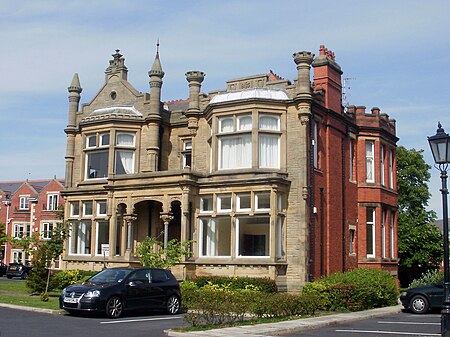Elmslie School
1918 establishments in England2000 disestablishments in EnglandDefunct schools in BlackpoolEducational institutions disestablished in 2000Educational institutions established in 1918 ... and 2 more
Grade II listed buildings in LancashireUse British English from February 2023

Elmslie School was a private girls' school in the English seaside resort of Blackpool, Lancashire, England, from 1918 to 2000. The school was established in a former house called the Elms, and later expanded into other buildings on the site. The Elms has been designated a Grade II listed building by English Heritage.
Excerpt from the Wikipedia article Elmslie School (License: CC BY-SA 3.0, Authors, Images).Elmslie School
The Elms,
Geographical coordinates (GPS) Address Nearby Places Show on map
Geographical coordinates (GPS)
| Latitude | Longitude |
|---|---|
| N 53.8094 ° | E -3.0313 ° |
Address
The Elms
The Elms
FY3 9FZ , Marton
England, United Kingdom
Open on Google Maps








